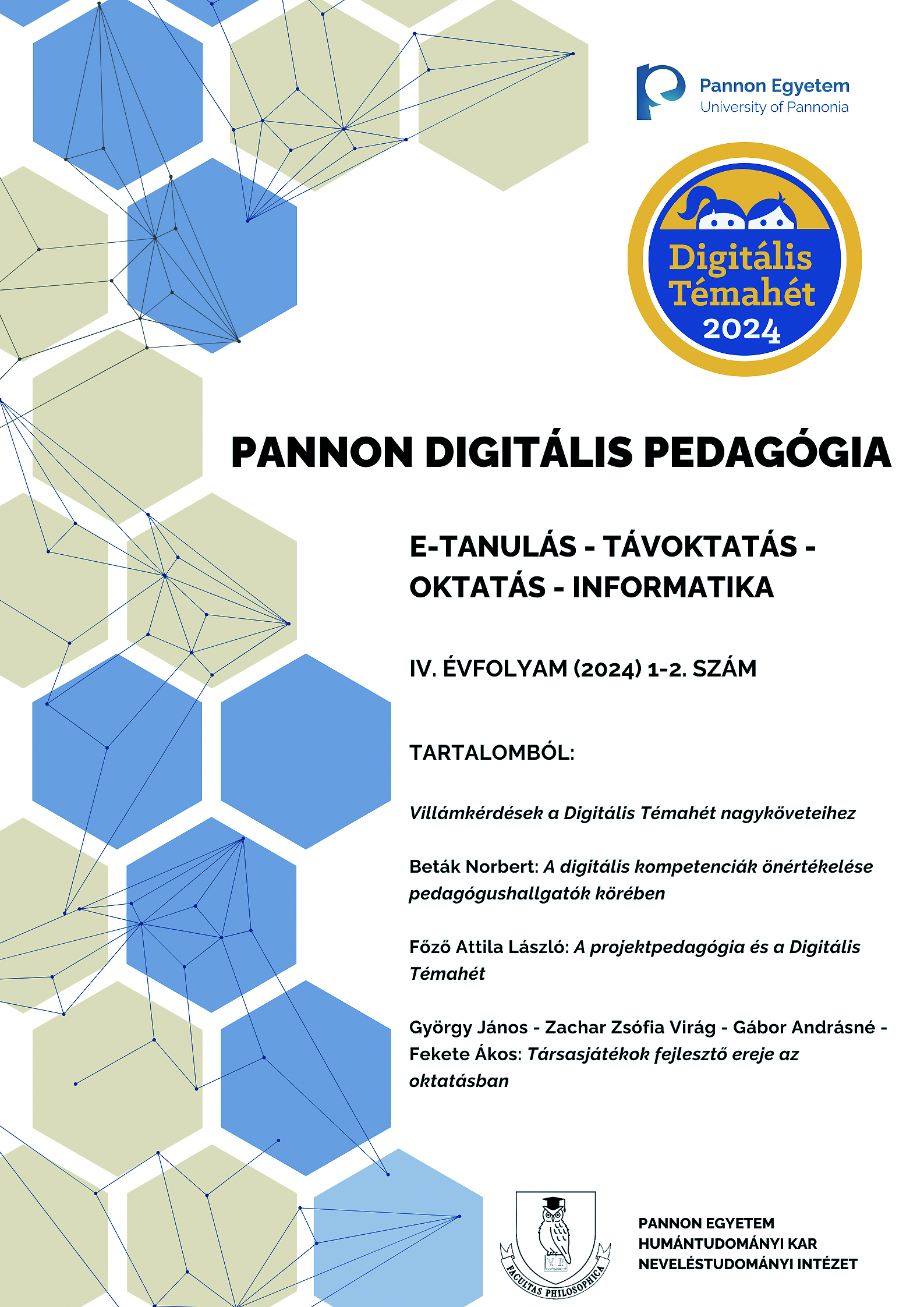Pí, a rejtélyes szám
Projekt
DOI:
https://doi.org/10.56665/PADIPE.2024.1-2.5Keywords:
-day, artifical intelligence, programming, digital projectAbstract
During the project, two 9th-grade classes worked in four groups to gain a deeper understanding of the Holy Grail of mathematics. They were investigating why such a strong fascination had developed around an endless series of
numbers. They proved with measurements that the quotient of the circle's circumference to its diameter is constant, They performed approximate calculations, just like mathematicians did in the past, discovered interesting historical
facts during their online research, created rhymes, generated poetry by exploiting the possibilities offered by AI, and even baked cookies using a cookie cutter made with a 3D printer. It turned out that some people organise gala dinners and world meetings, or spend years memorising digits in honour of the magic number, so they decided to
organise a birthday party this year for π, which is at the centre of their project. Deák Pí Day was held in conjunction with a non-traditional commemoration. The participants meticulously prepared the Pí Pavilion, programmed the Micro: bits of the neon sign, prepared for the Pí'Futam in the equestrian training centre, published the Deák Na'pi Lap, and then selected the best presentations to showcase to the regular patrons of the Pi'lvax café. By employing the methods of experiential pedagogy, the project showed that the joy of discovery is a powerful motivating factor for learning and integrating knowledge. In addition to its role as a knowledge mediator, it also provided opportunities to form, develop and strengthen key skills.
References
Bikics Gabriella (2019): Az élménypedagógia kialakulása és fejlődése Németországban és Nagy-Britanniában Alkalmazott Nyelvészeti Közlemények, Miskolc, 14. évf. 1. sz. 13-34. p. https://matarka.hu/koz/ISSN_1 788-9979/vol_14_no_1_2019/ISSN_1788-9979_vol_14_no_1_2019_013-034.pdf Utolsó hozzáférés 2024. 07. 15.
Csillag Péter (2014): A Pi napja – miről mesél a rejtélyes szám? https://nlc.hu/ezvan/20140314/a-pi-napja-mit-mesel-a-rejtelyes-szam/ Utolsó hozzáférés: 2024. 07. 14.
A mérés, ellenőrzés célja, fogalma mértékegységek, a mérő- és ellenőrző eszközök csoportosítása, a nóniusz-elv https://tudasbazis.sulinet.hu/hu/szakkepzes/gepeszet/gepeszeti-szakismeretek-1/2/meres-lenyege-fogalmai-folyamata/meres-merohasabokkal Utolsó hozzáférés: 2024. 07. 15.
Tippek és módszerek a formatív értékelésre a projektpedagógiában (2022) https://digitalistemahet.hu/hir/tippek-es-modszerek-a-formativ-ertekelesre-a-projektpedagogiaban Utolsó hozzáférés: 2024.07.1.5
A 2020-as NAT-hoz illeszkedő tartalmi szabályozók https://www.oktatas.hu/kozneveles/kerettantervek/2020_nat Utolsó hozzáférés: 2024. 07. 14.

